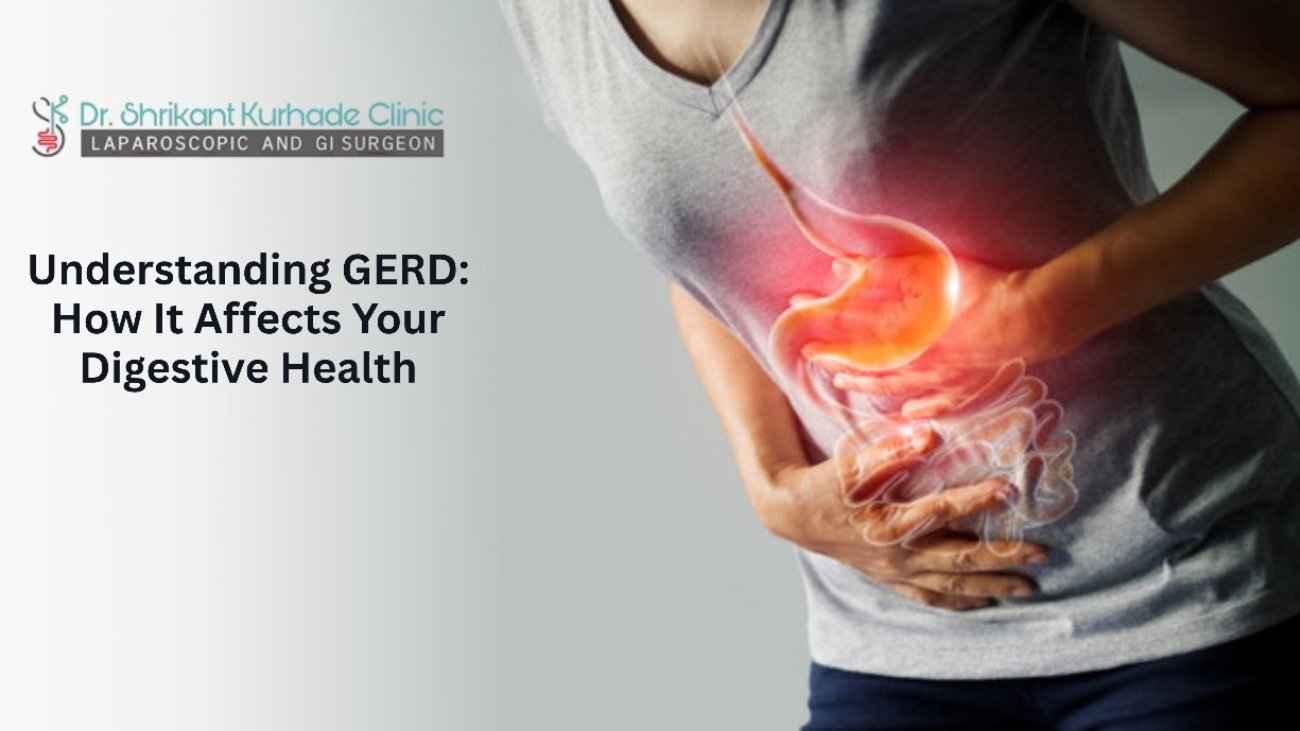Understanding GERD: How It Affects Your Digestive Health is crucial. One of the most prevalent but frequently misdiagnosed digestive disorders is gastroesophageal reflux disease (GERD). You may be suffering from GERD if you have ever had frequent heartburn, a sour taste in your mouth, or discomfort after meals. To effectively manage symptoms and safeguard your long-term digestive health, it is essential to comprehend this condition.
What is GERD?
Gastroesophageal reflux disease is referred to as GERD. It happens when stomach acid regularly refluxes into the esophagus, which is the tube that connects your mouth and stomach. Your esophageal lining may become irritated by this acid reflux, which could result in a number of unpleasant symptoms.
Common symptoms of GERD
Typical GERD symptoms include chest pain, regurgitation (a sour or bitter taste in the mouth), and heartburn (a burning sensation in the chest). Other possible symptoms may include nausea, bloating, difficulty swallowing, and a chronic cough.
How GERD Affects Your Digestive Health
GERD is more than just discomfort; if left untreated, it can eventually cause major problems.
1. Damage to the Esophagus
Esophagitis is an inflammation brought on by prolonged exposure to stomach acid. If left untreated, this can result in esophageal narrowing (strictures) or ulcers, which can make swallowing challenging.
2. The esophagus of Barrett
Barrett’s Esophagus, a disorder where the lining of the esophagus changes and raises the risk of esophageal cancer, can develop in some chronic cases of GERD.
3. Effect on Life Quality
GERD can cause eating anxiety, decrease appetite, and interfere with sleep. It may eventually have an impact on emotional health, energy levels, and nutrition.
What Causes GERD?
A weak lower esophageal sphincter (LES), which opens to allow food to enter the stomach and closes to keep it there, is the cause of GERD. Stomach acid can leak when the LES is weak or relaxes improperly.
What Triggers GERD:
- Being overweight
- Being pregnant
- Smoking
- Eating substantial meals or immediately afterward, lying down
- Eating foods that are acidic, fatty, or spicy
- Consuming carbonated drinks, coffee, or alcohol
What foods to avoid with gerd:
- High-fat and fried foods
- Spicy foods
- Acidic foods and drinks
- Alcohol
When is GERD Surgery Needed?
1 Poor Response to Medication
Surgery may provide long-term relief if you’ve tried several medications but are still experiencing frequent heartburn, regurgitation, or chest pain. Instead of only treating the symptoms, surgery can address the underlying cause.
2. Chronic Reliance on Medication
Some patients are afraid of the side effects or the expense of using lifelong drugs like PPIs. A permanent solution that lessens or completely removes the need for daily medication may be surgery.
3. Complications from GERD
If GERD has resulted in issues like:
-Esophagitis, or esophageal inflammation
-Narrowing of the esophagus
-Surgery for Barrett’s esophagus (pre-cancerous changes) may be advised to stop additional harm and lower the risk of cancer.
4. Hernia in the hiatus
A hiatal hernia occurs when a portion of the stomach protrudes.
Common Surgical Options for GERD
The Fundoplication
The most commonly performed surgery for GERD is robotic fundoplication surgery, in which the upper portion of the stomach (the fundus) is wrapped around the lower esophagus. This procedure strengthens the lower esophageal sphincter (LES), effectively preventing acid reflux and offering long-term heartburn relief. The robotic-assisted approach allows for greater precision, smaller incisions, and faster recovery compared to traditional methods.
LINX Device
A tiny ring of magnetic beads is positioned around the LES as a minimally invasive way to keep it closed while letting food pass through.
Repairing Hiatal Hernias
This procedure strengthens the diaphragm opening and corrects the hernia; it is frequently used in conjunction with fundoplication.
Is GERD Surgery Safe and Effective?
Yes. Anti-reflux surgeries like fundoplication have been performed for decades with excellent long-term results. Most patients experience significant symptom relief and improved quality of life.
However, like any surgery, it carries risks such as:
- Difficulty swallowing
- Bloating or gas
- Surgical site infections (rare)
That’s why surgical options should be carefully evaluated by a gastroenterologist or GI surgeon in Pune experienced in GERD management.
Conclusion.
GERD surgery can be a safe and lasting solution for patients who continue to suffer from persistent acid reflux despite medication. At KK Care Clinic, a detailed surgical consultation with Dr. Shrikant Kurhade, a leading expert in Robotic Surgeon in Pune, can help determine the most effective treatment path tailored to your needs.

